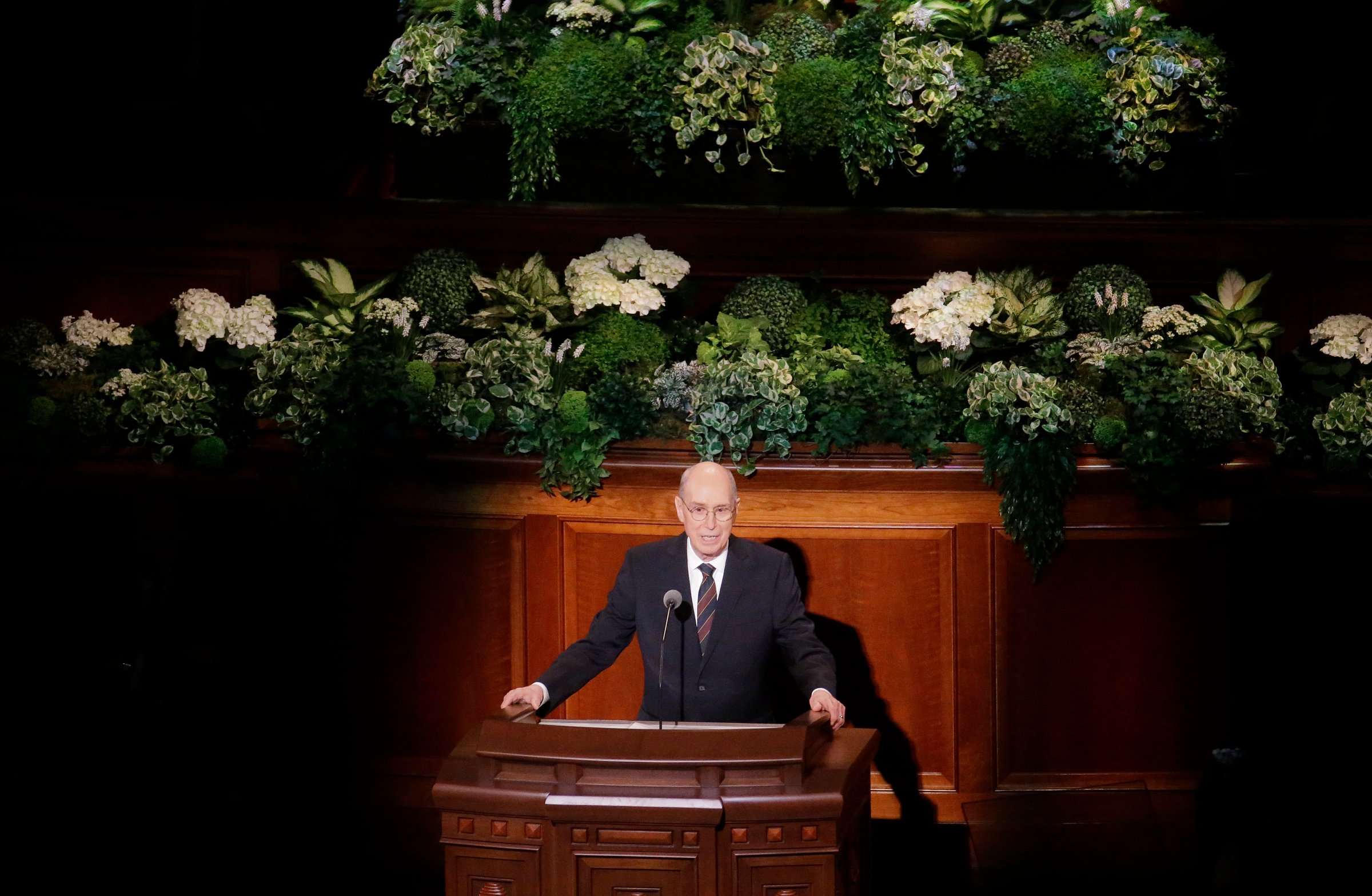
(SALT LAKE CITY) — Mormon leaders reminded church members Saturday about the importance of performing ceremonial baptisms on dead ancestors who didn’t receive the ordinance while alive.
Henry Eyring told a worldwide audience during a twice-yearly Mormon conference that God wants all his children to come “home again.” He encouraged listeners to use the religion’s massive genealogical database to trace their roots.
Ceremonial baptisms occur when a member brings an ancestor’s name to a temple. Mormons believe the ritual allows deceased people a way to the afterlife if they choose to accept it. The belief that families are sealed for eternity is one of the faith’s core tenets.
The practice is becoming more common than ever because of young church members who have embraced it, said Eyring, a member of a top governing body of The Church of Jesus Christ of Latter-day Saints, called the Quorum of the Twelve Apostles.
“They have learned that this work saves not just the dead; it saves all of us,” Eyring said. “There are now many people who have accepted baptism in the spirit world. … This is the work of our generation.”
But ceremonial baptisms offend members of some other religions, especially Jews, who became upset years ago when they discovered attempts by Mormons to alter the religion of Holocaust victims. They included Anne Frank, a Jewish teenager forced into hiding in Amsterdam during the Holocaust and killed in a concentration camp.
In the 1990s, after negotiations with Jewish leaders, the church agreed to end the ceremonial baptism of Holocaust victims. After it was revealed that they continued, Mormon leaders in 2012 spoke out against the practice and reminded the public that a virtual firewall was put in the database to block anyone who tried to access the names of people who died in the Holocaust.
The “proxy baptisms” also were mentioned Saturday at the conference in a speech by Russell M. Nelson, another member of the Quorum of the Twelve Apostles who is next in line to assume the church presidency. Nelson said Mormons who keep their covenants to Jesus Christ are given “Godly power.”
“God’s plan provides for those blessings to be extended to ancestors who died without an opportunity to obtain them during their mortal lives,” Nelson said.
Mark Bragg, a member of a secondary governing body, applauded the increase in baptisms for the deceased: “We are experiencing great joy and celebration on both sides of the veil.”
Their speeches came during a two-day conference in which leaders focus on a range of topics aimed at providing guidance and inspiration to the faith’s more than 15 million members worldwide.
Nearly 100,000 church members are expected to attend five sessions on Saturday and Sunday. Thousands more around the world will listen to the conference or watch it on television, radio, satellite and internet broadcasts in 90 different languages.
Dale Renlund, one of the newest members Quorum of the Twelve Apostles, told church members to guard against being intolerant of others with different opinions.
“We must not be guilty of persecuting anyone inside or outside the church,” Renlund said. “Church history gives ample evidence of our members being treated with hatred and bigotry. How ironically sad it would be if we were to treat others as we have been treated.”
More Must-Reads from TIME
- Where Trump 2.0 Will Differ From 1.0
- How Elon Musk Became a Kingmaker
- The Power—And Limits—of Peer Support
- The 100 Must-Read Books of 2024
- Column: If Optimism Feels Ridiculous Now, Try Hope
- The Future of Climate Action Is Trade Policy
- FX’s Say Nothing Is the Must-Watch Political Thriller of 2024
- Merle Bombardieri Is Helping People Make the Baby Decision
Contact us at letters@time.com